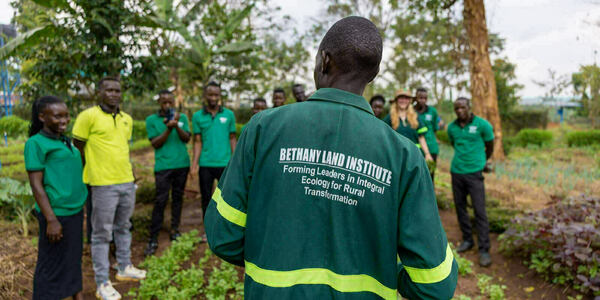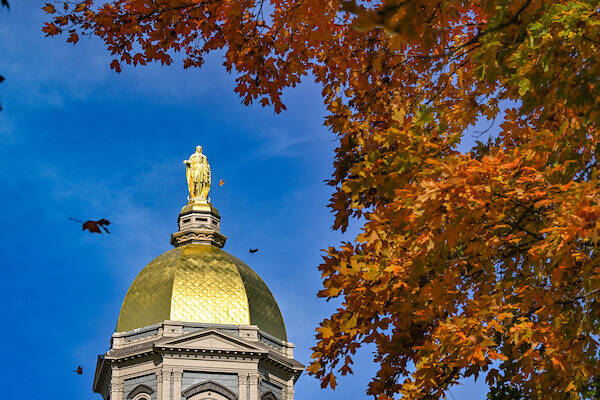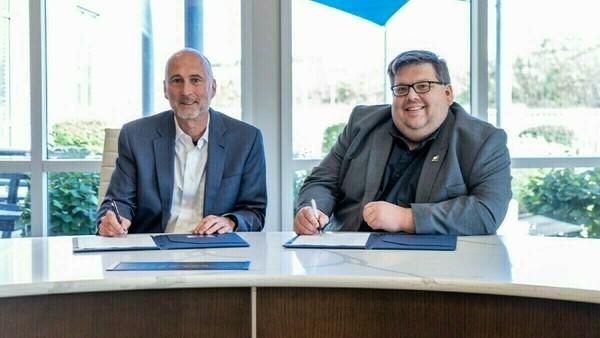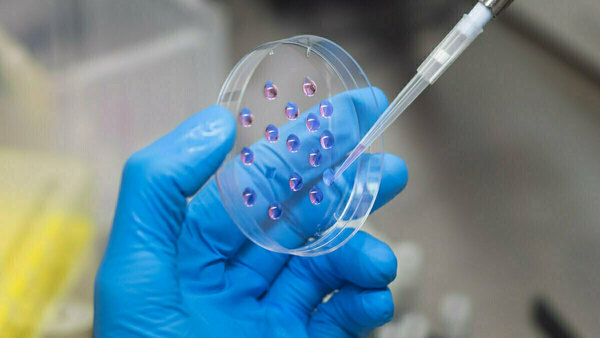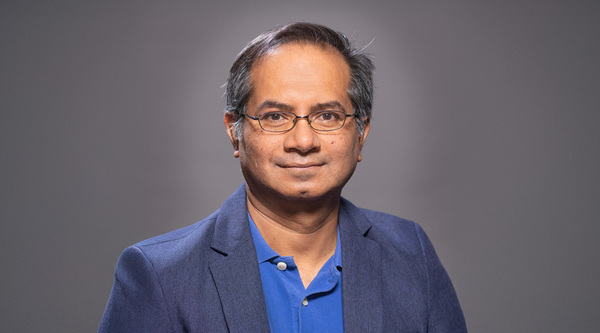Notre Dame Professor Castruccio wins world’s highest prize for high performance computing

Stefano Castruccio, Notre Dame Collegiate Associate Professor, is part of a 12-member team across three continents who won the 2024 ACM Gordon Bell Prize for Climate Modelling, the highest honor recognizing outstanding achievement in high-performance computing (HPC) applications.
Castruccio is the first researcher from Notre Dame to win the award, which many in the field consider the “Nobel Prize” of HPC applied to real-world systems. The Gordon Bell Prize is in its 37th year, with the prize specifically for climate modelling conferred for the first time in 2023.
Castruccio and his team harnessed the power of some of the world’s most advanced supercomputers to create high-resolution climate simulations, which reduce computational costs and data storage seen in typical climate models. They demonstrated their exascale climate emulator at the International Conference for High Performance Computing, Networking, Storage, and Analysis in Atlanta, where they received their award on Nov. 20, 2024.
Castruccio, a faculty member in the Department of Applied and Computational Mathematics and Statistics (ACMS) at the University of Notre Dame, led the statistical effort for the research.
“Right now, developing storage is becoming more and more expensive than computation,” Castruccio said. “So at some point, we’re going to run out of space; we are already running out of space for many applications in climate modeling.”
The award is the culmination of 10 years of work, Castruccio said, emphasizing that it involved a diverse and international team of climate scientists, machine learning experts, and high-performance computing specialists.
“This work not only pushes the boundaries of climate modeling technology but also underscores the importance of leveraging cutting-edge computational techniques and high-performance computing infrastructure to unlock new insights into climate dynamics and helps pave the way for a sustainable future for our planet,” said Sudipto Banerjee, senior associate dean for academic programs, University of California-Los Angeles (UCLA) Fielding School of Public Health, as well as professor of the Department of Biostatistics at UCLA.

Other team members include Sameh Abdulah, David E. Keyes, Zubair Khalid, Hatem Ltaief, Yan Song, Greorgiy L. Stenchikov and Ying Sun, all of King Abdullah University of Science and Technology, Saudi Arabia; Allison H. Baker, of the National Science Foundation’s National Center for Atmospheric Research in Boulder, Colorado; George Bosilca of NVIDIA Corp., Santa Clara, California and Qinglei Cao of St. Louis University, St. Louis, Missouri.
“I am thrilled to celebrate this outstanding achievement,” said Fang Liu, interim chair of the Department of Applied and Computational Mathematics and Statistics at Notre Dame. “This collaborative work represents a significant advance in using statistical models with the world's fastest supercomputers to address complex climate change challenges.
At the conference, Castruccio and team members shared an augmented reality visualization of their results using virtual reality glasses. Through the glasses, people could see the two spheres of the earth — the original simulator, and the version with their emulator, for comparison.
“Receiving this prestigious award—the first for Notre Dame faculty—highlights the growing prominence and impact of our department (ACMS) and Notre Dame in computational, statistical, and data science on the international stage,” Liu said.
Originally published by at science.nd.edu on November 26, 2024.
Latest Research
- What does it look like to live ‘Laudato Si’’? You can see it in rural UgandaWhen Emmanuel Katongole was growing up in rural Uganda, his family’s life centered on a 3-acre plot of land where they grew coffee, beans, maize, bananas and other food crops. A nearby spring, accessible by a short…
- Karen Deak named Executive Director of Notre Dame’s IDEA CenterKaren Imgrund Deak, pictured above, has been named executive director of the IDEA Center at the University of Notre Dame. Karen…
- Hope, Legacy, and the Fight Against Brain Cancer: The Story Behind the Hahn-Pflueger Brain Cancer Scholar Program“The most powerful thing in this world is hope,” said Rex Pflueger,…
- Notre Dame, Beacon Health System announce new, multiyear research collaborationThe University of Notre Dame and Beacon Health System have announced a new, multiyear research collaboration. Through this agreement, Notre Dame and Beacon will jointly develop collaborative, health-focused research projects that are of interest to both organizations, particularly in the areas of oncology and health data.
- Fighting to cure brain cancerTo better understand glioblastoma, an aggressive brain cancer, a Notre Dame researcher thought outside the box—and off planet Earth. Read the story
- ND electrical engineer Ranjan Singh named founding editor-in-chief of APL Engineering PhysicsRanjan Singh, professor of electrical engineering at the University of Notre Dame and pioneer in terahertz photonics, spintronics and metamaterials, has been named founding editor-in-chief of Applied Physics Letters (APL) Engineering Physics.








